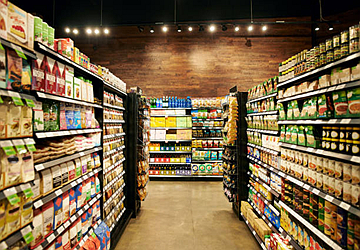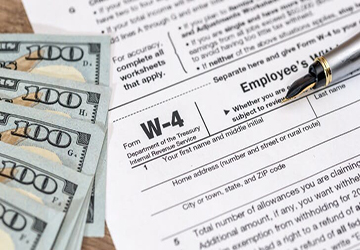Have you ever found yourself wondering if there’s a way to make that grocery bill a tad friendlier on your wallet?
After all, groceries are an everyday necessity. If you're keen on unlocking the secrets to savings without compromising on your grocery needs, you're in luck.
Why should you be paying more when there are strategies to help you spend less, right? We've all been there, stretching our dollars to cover our grocery lists.
But worry not. This blog post is designed especially for you. Dive in to uncover “7 Effective Strategies for Saving on Groceries”. Let’s embark on this saving spree together!
7 Essential Tips for Grocery Savings
Before we launch into our treasure trove of tips, remember that each strategy is woven with your best interests in mind. They're meticulously designed to guarantee you maximum savings without curbing your grocery desires. Let's journey through these pivotal pieces of advice together.

1. Plan and Prep with a Shopping List
Starting off with the basics, one of the key deterrents of overspending is having a well-thought-out shopping list.
When you venture into a store without a clear idea of what you need, those tempting aisle displays and promotional offers often lead to impulse buys. Over time, these small, unplanned purchases accumulate, affecting your monthly budget more than you might realize.
By sticking firmly to a list, you not only buy only what you need but also streamline your shopping process, saving both time and money.
How to Do It?
Before any grocery outing, take a few moments to think about the meals you'll prepare for the week. Write down the ingredients you'll need, being specific about quantities to minimize waste.
As a pro tip, always shop post-meal. Why? Shopping on an empty stomach often results in unnecessary and often unhealthy purchases.
So, keep that list handy, and resist straying from it. Your wallet will thank you!
2. Shop Seasonally and Locally
Nature is pretty smart. It provides fruits and vegetables when they're at their peak – bursting with flavor and packed with nutrients. What many don’t realize is that these seasonal offerings are also more budget-friendly.
When a particular produce is abundant, prices drop. Moreover, local markets often provide goods at a cheaper rate than big-chain supermarkets. The reason?
Transporting goods over shorter distances incurs lower costs, and these savings often get passed down to the consumer.
How to Do It?
Familiarize yourself with the seasonal produce in your region. This might involve doing a little research initially, but it’s well worth the effort. During your next shopping trip, rather than heading straight for the supermarket, visit a local farmer's market.
The produce here is not only fresh but often more reasonably priced. Plus, you get the added benefit of supporting local businesses.
3. Embrace Bulk Buying
While it might seem counterintuitive to buy more to save money, bulk buying can indeed be your golden ticket to savings – especially for non-perishable items. Think about items like rice, pasta, canned goods, or toiletries.
These are products that you'll eventually use, and they often come with a discounted price tag when bought in large quantities.
How to Do It?
Look for wholesale or bulk-buying stores in your vicinity. If you decide to go this route, remember to compare unit prices, ensuring you're genuinely getting a better deal.
While bulk buying is economical, it requires adequate storage space. Before you splurge on 10 kg of pasta, ensure you have the space to store it.
Moreover, avoid the bulk-buying trap of purchasing items you don’t really need just because they’re on offer.
4. Master the Art of Couponing
Coupons have long been hailed as the saviors of savvy shoppers. With the age of the internet, couponing isn’t restricted to cutting out paper snippets from magazines and newspapers.
There are numerous apps and websites dedicated to providing deals and discounts. But, like any tool, the effectiveness of coupons depends on how you use them.
How to Do It?
Start by downloading a few reputable coupon apps or subscribing to websites that cater to your local grocery stores. Set aside a time each week to skim through the offers.
When you find a relevant deal, mark it. However, don't let coupons trick you into buying items you don't need or in quantities you can't consume.
Use them strategically, especially for non-perishables or items you can freeze for long-term use.
5. Understand Price Cycles
Believe it or not, most products in supermarkets have a price cycle. This means that over a period, usually a few weeks or months, the price of the product fluctuates between its highest and lowest points.
By tracking these cycles, you can time your purchases to coincide with the lowest prices.
How to Do It?
Begin by tracking a few staple items in your pantry. Note their prices over several weeks. You’ll start to see a pattern emerge.
Once you've identified the cycle, bulk buys during the price dips. This might require a bit of patience initially, but the savings, in the long run, are well worth the effort.

6. Embrace Store Brands
Many shoppers overlook store brands in favor of well-known national brands, often due to misconceptions about quality.
In reality, store brands, or generic products, often provide the same quality as their branded counterparts at a fraction of the price.
How to Do It?
On your next grocery trip, give store brands a chance. Begin with non-perishable items like pasta, rice, or canned goods. Compare the ingredients and nutritional information to ensure you're not compromising on quality.
Over time, as you become more comfortable, you can expand your store brand purchases, leading to consistent savings on your bill.
7. Limit Convenience Foods
Pre-packaged meals, ready-to-eat snacks, and instant foods might save you time, but they often come with a hefty price tag. Moreover, they're usually less nutritious than their homemade counterparts.
Preparing meals from scratch might sound daunting, but with a bit of planning, it can become second nature.
How to Do It?
Plan your weekly meals ahead of time. Instead of buying pre-chopped veggies or pre-marinated meats, buy fresh produce and do the prep yourself. Utilize weekends to prepare in bulk and freeze portions for the week ahead.
Not only will you be saving money, but you'll also have better control over what goes into your food, ensuring healthier meals for you and your family.
Conclusion
In a nutshell, smart grocery shopping doesn’t mean compromising on quality. It's about making informed choices, planning, and always being on the lookout for opportunities to save.
Remember, every penny saved on groceries is a penny earned. So, why not start today? Embrace these strategies and watch your savings grow. Ready to take charge of your grocery bills?
Start now and shop smart!









